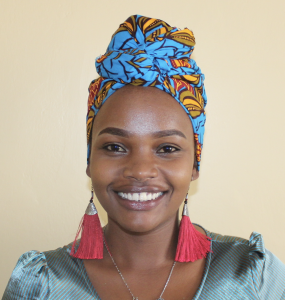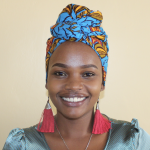When we went for our first visit to Sikhendu Primary School during the holiday and therefore did not find anyone there. We had to make a call to the nearest teacher available, Mr. Paul Mwema. He received our call and rushed to the school very quickly after he heard that we were there to help provide his students with water. He said that we were "God-sent" since they have been desperately waiting for this kind of help.
There are 850 students attending Sikhendu Primary School who do not have a reliable source of clean water. When the school first opened in 1992, the parents recognized their children's need for water and dug a well behind one of the classrooms.
This well is a hole in the ground covered by a hatch. It is entirely susceptible to contamination, especially as students constantly lower a bucket inside to bring up the water. Whoever dug the well stopped right when they hit water. This is a problem because the well dries up during the dry season because it is not deep enough.
Water scarcity affects the pupils' academic performance because it takes a lot of time to collect water. It is also very dangerous for the younger pupils because they can easily fit through the hatch and fall inside.
After drinking the water from this well, the pupils tend to get sick.
"We suffer so much," said Teacher Paul Mwema.
"Especially during the dry season because the well dries up. The pupils have to bring water from home every day which places a physical toll on them and wastes their time."
The water students carry to school during these times is even riskier to drink, since teachers have no idea where it comes from.
Students need a cleaner, more reliable source of water. A rainwater tank will allow the school to store water in a way that it can be treated before drinking. With clean water nearby, they will be able to focus on their studies in mathematics, English, Swahili, social studies, sciences, and religion.
What we can do:
Training
Training on good hygiene habits will be held for two days. The facilitator will use PHAST (participatory hygiene and sanitation transformation), ABCD (asset-based community development), CTC (child to child), lectures, group discussions, and handouts to teach health topics and ways to promote good practices within the school. The CTC method will prepare students to lead other students into healthy habits, as well as kickstart a CTC club for the school.
Handwashing Stations
There is currently nowhere for students to wash their hands.
We will deliver two handwashing stations to the school, and the club will fill them with water on a daily basis and make sure there is always a cleaning agent such as soap or ash.
VIP Latrines
"The population is on a high increase. The National Government Insurance Fund helped to construct the Early Child Development classes but they did not construct toilets for them - so they use the available toilets which are at the far end of the school. The toilets are in poor condition as even some of the doors are falling off while others have leaking roofs," said Headteacher Carolyne Musonye.
Two triple-door latrines will be constructed with local materials that the school will help gather. Three doors will serve the girls while the other three serve the boys. And with a new source of water on school grounds, students and staff should have enough to keep these new latrines clean.
Rainwater Catchment Tank
A 50,000-liter rainwater catchment tank will help alleviate the water crisis at this school. The school will also help gather the needed materials such as sand, rocks, and water for mixing cement. Once finished, this tank can begin catching rainfall that will be used by the school’s students and staff.
We and the school strongly believe that with this assistance, standards will significantly improve. These higher standards will translate to better academic performance!

 Rainwater Catchment
Rainwater Catchment
 Rehabilitation Project
Rehabilitation Project































